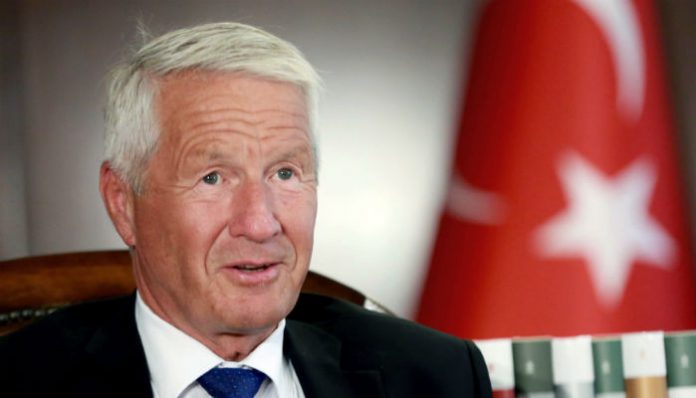In his opening speech for the year 2017, Secretary-General of the Council of Europe (CoE) Thorbjorn Jagland urged an end to a state of emergency in Turkey prior to a referendum on a switch to an executive presidential system.
Jagland also said all governments, regardless of system of governance, are expected to fulfill the requirements of the European Convention on Human Rights. The CoE head underlined the importance of fundamental rights, freedom of expression, separation of powers and the independence of the judiciary. Jagland warned against the dangers of holding a referendum under the state of emergency that has been in effect in Turkey since a failed coup on July 15.
Jagland had previously suggested that Turkey form a commission to evaluate human rights violations under the state of emergency to reduce the number of lawsuits that will be taken to the European Court of Human Rights (ECtHR).
According to legal expert Kerem Altıparmak, the Justice and Development Party (AKP) government formed the commission to investigate lawsuits filed during the state of emergency to delay the process for victims to take cases against the government to the ECtHR.
Government decree No. 685, one of four decrees issued on Monday, established the Commission to Investigate State of Emergency Matters to resolve lawsuits filed against state institutions by those dismissed from state jobs, expelled from schools, retired personnel whose ranks were downgraded and also owners and personnel of closed institutions, associations, trusts, syndicates, federations, confederations and private medical, educational and media institutions, including television stations, newspapers, radios, news agencies, magazines and distribution agencies.
Altıparmak, a human rights lawyer and political science professor at Ankara University, said in an article on his Facebook account Monday that the formation of the commission aims to prevent human rights violation cases against the government from being brought to the ECtHR.
Underlining that he had guessed about the formation of the commission during a meeting with lawyer and academic friends on the weekend, Altıparmak said Turkey’s Constitutional Court, which is the final domestic remedy before taking a case to the ECtHR, will transfer cases to this commission to block or delay the process.
“The Constitutional Court will transfer all applications [by victims of government decrees] to the commission. Nobody will be reinstated to their former jobs as the entire process in the commission, administrative procedures, appeals, high court and ECtHR will take at least 10 years,” he said.
Only two out of seven members of the commission will be appointed by the Supreme Board of Judges and Prosecutors (HSYK), while the other five will be appointed by the prime minister and ministers.
Altıparmak said the commission will be expected to deal with approximately 100,000 cases within two years. “It means at least 250 cases in a day that have to handled by the commission. … It is not possible to handle all those cases that quickly or fairly,” he added.
Another professor of law from Ankara Gazi Univeristy, İzzet Özgenç, also criticized the commission in Twitter messages on Wednesday, saying that it will only postpone addressing the violations caused by the state of emergency.
Özgenç added that such a commission aims to reduce the number of petitions to the Constitutional Court.

